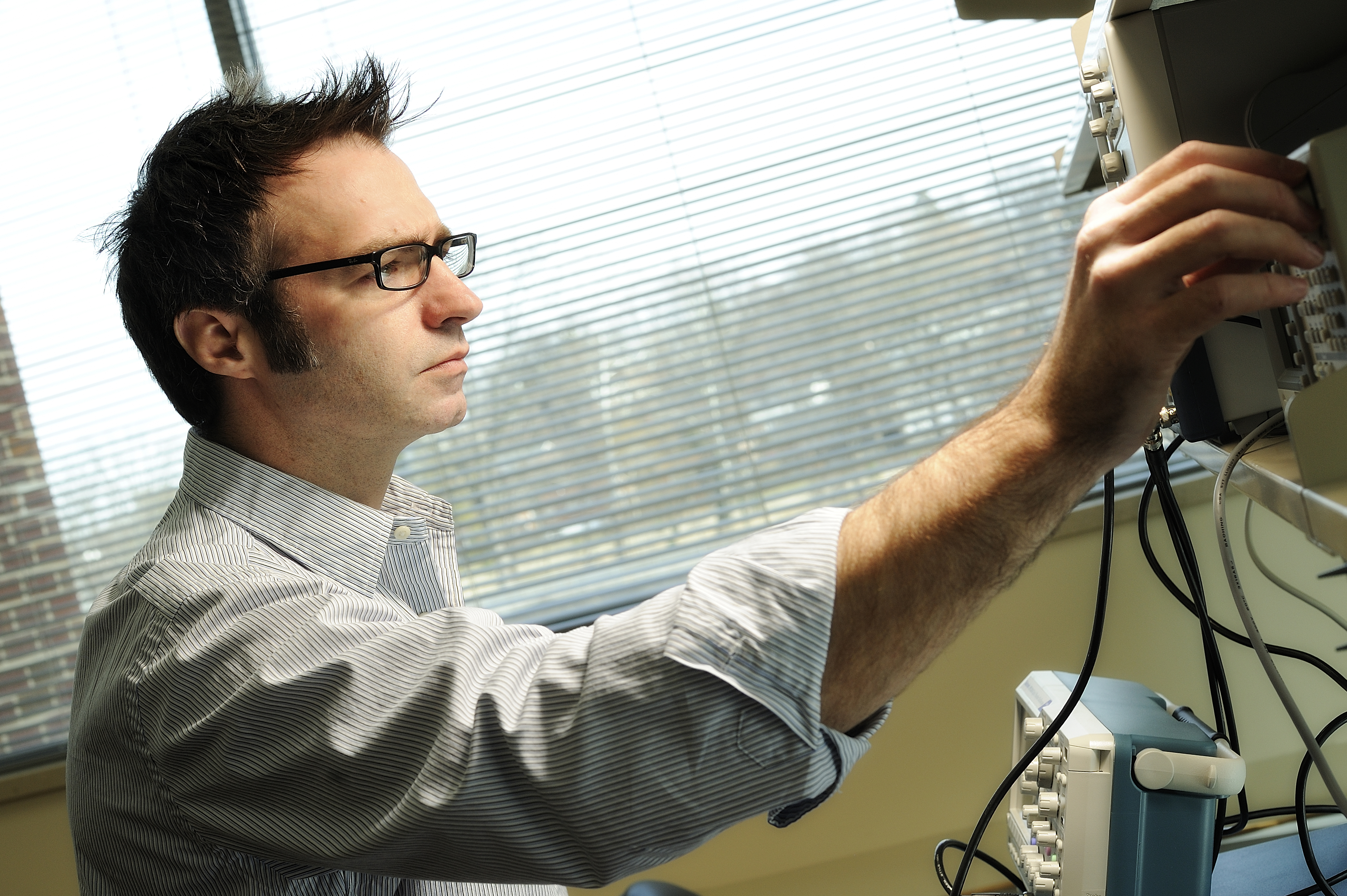New researcher at Virginia Tech Carilion Research Institute advancing non-invasive brain stimulation

William (Jamie) Tyler, who has received international attention for research on the development of low-intensity ultrasound for the treatment of such brain disorders as epilepsy and Parkinson's disease, has joined the Virginia Tech Carilion Research Institute.
Tyler will be an assistant professor with the institute and with the School of Biomedical Engineering and Science in the College of Engineering at Virginia Tech.
He has been an assistant professor of neurobiology and bioimaging in the School of Life Sciences at Arizona State University since 2006. In 2010, he was awarded the Arizona Governor's Innovator of the Year Award for Academia for his research on noninvasive brain stimulation therapies using ultrasound. His work has resulted in several patent applications, the development of prototype devices, and the formation of medical device company, SynSonix LLC, which is pursuing its R&D activities in Cambridge, Mass.
"My group studies the fundamental properties of synaptic transmission and how best to control neuronal activity for making nervous systems more efficient," he said.
The ability to treat a number of major brain disorders that become unresponsive to pharmacological intervention, such as Parkinson’s disease, major depression, or severe seizures, can require invasive neurosurgery with the placement of stimulating electrodes deep into the brain. Such treatments are effective but risky, so they are used rarely and not until other treatment options have been exhausted. Tyler has demonstrated on laboratory animal models that pulsed ultrasound can be used to stimulate neuronal activity without the need for invasive brain surgery or genetic manipulation.
The aim of his group’s work is to stimulate cells in specific regions of the brain to release communication molecules called neurotransmitters since many brain disorders are a result of disrupted communication between groups of nerve cells. Their work is supported by the U.S. Army Research, Development, and Engineering Command and the Defense Advanced Research Project Agency.
SynSonix is developing a platform for medical devices that use ultrasound to regulate brain activity. "We look forward to integrating several aspects of our research and development enterprise into the Roanoke and New River Valley technology corridors soon," Tyler said.
In some embodiments, the SynSonix technology could take the form of helmet-mounted devices. "While at this stage, the headgear is a bit bulky for around the clock wear, the military is interested because the technology is a promising way to treat soldiers returning from war who are suffering from traumatic brain injuries," Tyler said. Over 1.5 million Americans per year suffer a traumatic brain injury. Not only are they the signature injury of the wars in Iraq and Afghanistan, but traumatic brain injuries are the greatest cause of death and disability in children as well as an increasingly important health issue for athletes and the aging population due to falls and poor balance.
“We are very fortunate to have recruited Dr. Tyler to Roanoke and the new Virginia Tech Carilion enterprise," said Michael Friedlander, executive director of the Virginia Tech Carilion Research Institute. "He is just the sort of innovative leading scientists who embodies the spirit of the research institute – that is, someone who carries out novel, fundamental multi-disciplinary research and who also translates his discoveries into new technologies and potential medically applicable therapies to treat major health problems. Jamie is a creative, visionary scientist who brings to bear the tools of mathematics, computation and engineering to solve important biomedical problems, collaborating widely with other basic scientists and physicians. Lots of good things will arise from his work at the Virginia Tech Carilion Research Institute and he will add substantially to the intellectual spirit and technological innovation of the Roanoke enterprise.”
Tyler has published his research in range of prestigious academic journals, such as Nature Neuroscience, Neuron, and the Proceedings of the National Academy of Sciences, as well as more specific discipline journals, with resulting coverage in such media as The Economist, Popular Science, MIT’s Technology Review, and IEEE Spectrum.
Tyler earned his Bachelor of Science degree and his Ph.D. from the University of Alabama at Birmingham in psychology and behavioral neuroscience. He completed a three-year postdoctoral fellowship with the Harvard University Department of Molecular and Cellular Biology before joining the faculty at Arizona State University.







